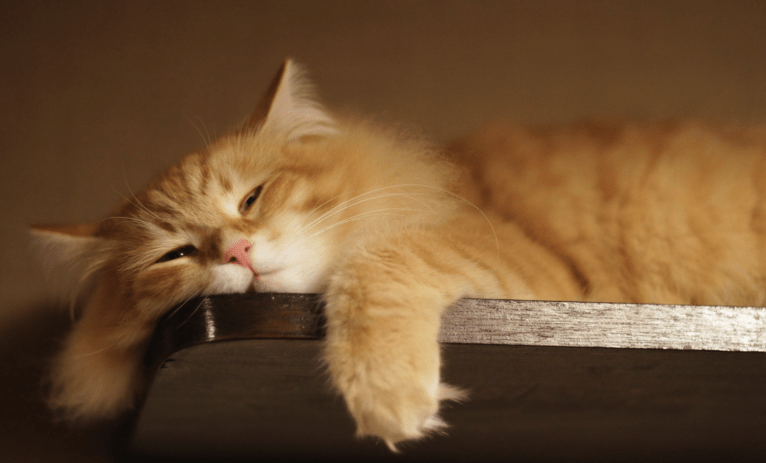Laziness Explained
1. The type of sleep they are having
Did you know that cats have two different kinds of sleeping state? With the amount of sleep they have in a day, there is so much room for the occurrence of these sleeping states. One is lighter than the other. A cat in a light sleep state is most likely to jolt awake as soon as it hears even the tiniest sound. It is just that there are times in which they are in the deep sleep state, in which recovering from slumber will take them longer than usual. They are simply wired to be this way. Lazy? I think not.
2. Why do they sleep in the first place
While it is true that a cat may most probably have spent more than half of its lifetime sleeping, it does not mean that they are just being lazy. Has it ever occurred to you that perhaps there is nothing left for your cat to do? Instead of wreaking havoc, it simply thing to take a quiet nap. The stimuli present or the lack thereof in its surroundings is also key to explaining why cats seem to be lazy.
3. Stop trying to make fetch happen
Well, excuse me for an obviously Mean Girls reference right here. But I can’t help but imagine cats saying this to cat parents who insist on having them fetch whatever. This attitude also boils down to genetics. Cats are most often tagged as being lazy because it would refuse to fetch, or would simply ignore your efforts to teach it to fetch.
Cats learned to harness resources around them, making them independent creatures. Cats do not need much attention and help from us humans, they can help themselves. So I’m telling you now that it will be really difficult to teach your cat tricks like these, for the very reason that they would probably have no use for it.
4. It’s in the genes
Domestic cats are descendants of wild cats. And a certain quality and habit of these wild cats didn’t wear off as next-generation cats become more and more domesticated. Just like wild cats, domesticated cats are more active during the night and the wee hours in the morning. That’s why they are mostly sleeping in the morning – they are simply trying to prepare for an extremely exciting nightlife later on.
5. Uh-oh, cloudy?
If the laziness is sudden, perhaps it is a symptom of something that your cat may be feeling. It isn’t laziness but lethargy and could mean that your cat is sick.
Tips for a more active lifestyle!
If you wish for your cat to have a more active lifestyle, there are a lot of things that you can actually do!
1. Spend more time with your cat
Perhaps your cat is feeling lonely and needs more of that loving coming from you. Authentic and organic playtime is important to a more active lifestyle.
2. Find out what elicits an active reaction from your cats
As you spend more time with your cats, try to get to know them better. Observe what things, actions, and sounds, make them move or have a reaction to. These are useful for encouraging your cat to become more active.
3. Cat toys!
There are a lot of cat toys out there that will suit your cat’s needs. Interactive cat toys are most interesting and most appropriate if you wish for your cat to become more active. These cat toys also serve as additional stimuli to keep your cat occupied
4. Change its diet
Sometimes, there is also some sort of connection with your cat’s diet. Shift to higher quality cat food that contains a lot of nutrients and minerals. Cat food is your cat’s primary source of energy, a diet with high energy source will be helpful.
